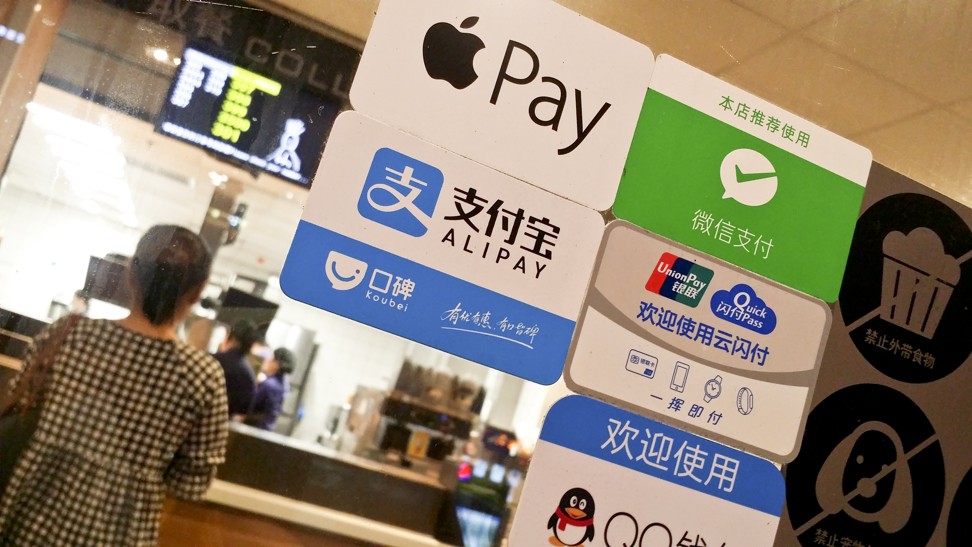
Hong Kong prepares to usher in virtual banks, as 60 firms apply to be pioneers in financial revolution
When SagaDigits, a HK$2 million (US$254,820) start-up, wanted to add post-merger shareholders and signatories to its corporate bank account, its chief executive approached a Hong Kong bank for help.
What happened next turned into many months of back-and-forth paperwork and arguments with the lender, said the company’s chief executive officer, Arthur Chan. He even spent a month tracking down his bank relationship manager after the staff was relocated to another branch.
“It took six months to fix what I thought was a simple matter,” Chan said in an interview with the South China Morning Post, declining to name his bank. “The way that traditional banks handle their small and medium-sized clients is too difficult and simply unsatisfactory.”
China’s tech giants have a bold plan to monetise their user base -- become their banker
Chan, whose very business is engaged in using big data to help companies enhance their services and products, is gunning for a revolution in Hong Kong’s banking and finance industry.
For starters, virtual banks will not need to maintain any bricks-and-mortar presence, although they do have the option of having customer service centres. They can provide loans, operate savings accounts with no minimum account balance or low-balance fees. They can also issue credit cards, or offer online payment services.
When will Hong Kong’s next Octopus moment occur?
“Overseas experience shows that virtual banks could be successful in certain areas,” including in the US and in Europe, said KPMG China’s partner for banking and capital markets, Paul McSheaffrey, who has been based in Hong Kong since 2004. “Customers do not need to queue up at the branch, but can simply use their smartphones or desktop computers to transfer money electronically.”
In mainland China, the marriage between banking and internet technology has already spawned several ventures with loans that number in the hundreds of billions of yuan since 2017.
In Hong Kong, which is lagging mainland China in the adoption of smartphone-enabled payment systems, virtual banking is still the vanguard of a revolution.
Already, 60 companies including Standard Chartered Bank, payment operator Yedpay! and online lender WeLab have said they are interested to be among the pioneers of this banking revolution, ahead of an August 31 deadline for applications.

The new virtual banks will add to the 154 local and overseas lenders that are already licensed in Hong Kong, where they operate a combined 1,129 branches and 3,300 automated teller machines (ATMs) at the end of last year.
That makes Hong Kong, on a per capita basis, one of the world’s best-served cities in banking, with the number of ATMs per 100,000 people higher than the global average, behind only Singapore, according to World Bank data. You could even say Hongkongers get more banks for their bucks.
“The next generation of bank customers may never need to visit a branch,” said Deloitte China partner Tim Pagett. “Through the use of existing e-identity, biometric recognition and other verification techniques, virtual banks can establish a customer relationship that is just as meaningful and lasting as a physical contact.”
In a densely packed urban centre like Hong Kong, with the world’s most expensive residential and commercial real estate, the migration of bricks-and-mortar banks to a virtual presence has implications for the demand of prime space.
A typical 2,000 sq ft street-level bank branch in the city costs HK$1 million to rent every month on average. A branch of that size typically needs about 40 cashiers, bankers, accountants and security personnel to maintain, which adds up to another HK$1 million in monthly staff costs.
On top of that, the bank requires operational services in the back office, including accounting, compliance, cybersecurity and technology.
That partly explains why the average bank in Hong Kong would not be interested in any loan smaller than HK$200,000 because it just would not be that profitable to manage. Hence smaller customers are pushed to the back of the queue, where opening a new account may take up to six months.
HSBC exploring smoother process for opening company accounts in Hong Kong
“They have a lot of paperwork and compliance, which made the life of small enterprises and start-ups difficult,” said SagaDigit’s Chan. “Many start-ups simply find it impossible to open a bank account through a traditional bank. Virtual banks may not be perfect, but at least they give start-ups like us a choice. I have suffered enough of the pain of the traditional banks.”
The minimum capital required to establish a bank is HK$300 million in Hong Kong, which raises the barrier to entry to all but the deepest corporate pockets. That creates a niche market for virtual banks, said Oracle’s regional managing director Karen Yip.
“We’re seeing a trend in Hong Kong where digital, virtual banks are using open application programming interfaces to create a niche and respond to a demand that traditional banking models could not possibly fulfil – meeting the needs of previously underserved customers, such as millennials without credit history as well as small- and medium-sized enterprise lending,” she said, citing an Oracle survey that showed 69 per cent of consumers prefer to have their entire financial needs served entirely online.
“The era of the one-stop financial institution is ending. Many banks will transform their operating model from simply providing products and services, to offering a platform which customers turn to for all sorts of lifestyle needs.”
The pervasive use of online payments also has implications for the use and circulation of cash, and would, over time, reduce the need for such ancillary services as on-site security and cash trucks for transferring money from head office to branches.
“With the massive promulgation of online payments, the use of e-wallets and vast array of stored value options, there is much less need for physical currency and more outdated modes of payment such as cheques and bank transfers,” Deloitte’s Pagett said. “It is inevitable that, as with many traditional services, we will see an almost complete move to the virtual world in the coming years.”

Still, not everybody is convinced.
“While a successful cyberattack is a serious matter for a traditional bank, it could strike a fatal blow to a virtual bank with technology at the core of its brand,” KPMG said. “Mobile apps need to balance simplicity and ease of use with the need to ensure that risks and contractual terms are properly explained. Given the greater use of open application programming interfaces (APIs) and partnerships with third parties, data protection is another area which needs to be carefully addressed.”

And some bank customers prefer the personal touch or counsel of their relationship managers.
“Any wealthy person would prefer to be served in person,” said veteran stockbroker Au Son-Yiu, who counts many of the city’s tycoons among his trading clients. “They like a nice cup of tea when they show up at a branch. For large transactions, they would also prefer to have a human overseeing it, instead of relying on a telephone line or a computer.”

